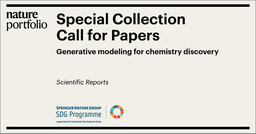Building Resilience through Sustainable Food Environments and Diets
Published in Sustainability and Agricultural & Food Science

In the face of global challenges such as climate change, population growth and food insecurity, it is imperative to advance our collective understanding of sustainable food environments and diets that are healthy, accessible, and secure.
The key Sustainable Development Goal, “End hunger, achieve food security and improve nutrition and promote sustainable agriculture” (SDG 2), set by the United Nations, addresses the complex linkage between agricultural practices, environmental sustainability, and food security. This collection addresses pressing questions related to sustainable food environments and diets.
How can agri-food systems worldwide become more productive and less wasteful? Which elements of traditional farmer knowledge, enriched by the latest scientific knowledge, can support productive food systems? How can innovative technologies contribute to sustainably increasing agricultural production, improving the global supply chain, decreasing food losses and waste, and ensuring that all who are suffering from hunger and malnutrition have access to nutritious food? How do global economic dynamics affect local food systems? How can community-level food-related decision-making knowledge be integrated to increase decision-making processes at national and regional levels to achieve synergies and decrease food insecurity? Which policies should be implemented to create more resilient food environments and promote diverse and nutritious diets?
Significant advances have already been made in enhancing the resilience of food production systems to climate change, promoting sustainable agricultural practices, and understanding the impact of food environments on the dietary choices of consumers. However, future research advances can still be made to find novel approaches to mitigate the environmental impact of food production while ensuring food security for all.
This Collection will highlight recent developments focused on: climate-resilient agricultural practices; sustainable food production technologies; the impact of food environments on dietary choices; policies for creating resilient food environments; and reducing food loss and waste for resilient food systems.
As Agriculture & Food Security is calling for submissions to our Collection on ‘Building Resilience through Sustainable Food Environments and Diets’, we invite you to submit your research findings!
The team of guest-editors working on this Collection is: Dr Joana Nazaré Morgado (University of Lisbon, Portugal) and Dr Lerato Phali (University of KwaZulu-Natal, South Africa).
About the Guest Editors
Dr Joana Nazaré Morgado, PhD, University of Lisbon, Portugal
Dr. Morgado has a Masters in veterinary medicine and recently became the first PhD in Sustainability Sciences of the University of Lisbon. She has collaborated with universities from Denmark to Italy and has worked in international organizations and EU agencies, such as FAO-UN and EFSA. Her areas of research are, within sustainability, in line with One Health and related subjects. These encompass: food safety and security, animal health (e.g. zoonoses, emerging pandemic threats) and welfare, healthy diets, socioeconomic determinants’ analysis, consumers' dietary changes and their impact on health (health impact assessment).
Dr Lerato Phali, PhD, University of KwaZulu-Natal, South Africa
Lerato Phali holds a PhD in agricultural economics from the University of KwaZulu-Natal. She is a former Rotary Global research fellow, and a Young Agricultural Professional Fellow, and lectured at the University of Pretoria before joining the Department of Agricultural Economics as a lecturer at the University of KwaZulu-Natal. She has authored peer-reviewed journal articles and book chapters in water resource governance, government policy impacts, food waste and loss, and agricultural productivity. Her research interests include climate change (adaptation, mitigation, resilience, carbon accounting), water security, and development policy.
Follow the Topic
-
Agriculture & Food Security

This is a peer-reviewed open access journal that addresses the challenge of food security.
What are SDG Topics?
An introduction to Sustainable Development Goals (SDGs) Topics and their role in highlighting sustainable development research.
Continue reading announcementRelated Collections
With Collections, you can get published faster and increase your visibility.
Food Security in High-Income Nations: Issues, Policies and Future Directions
Food security remains a critical issue, even in high-income nations, as disparities in access to nutritious food contribute to malnutrition and obesity. Understanding the complexities of food systems, trade policies, and economic inequality is essential to address these challenges effectively. Recent advances in research have highlighted the intricate relationship between agricultural trade and food security. Studies have shown that while trade can enhance food availability and variety, it can also exacerbate inequalities within high-income nations. For instance, the rise of food deserts in urban areas reflects a failure to ensure equitable access to healthy food, even in wealthier contexts. Additionally, the growing awareness of the health impacts of food systems has led to a more nuanced understanding of the links between food security, obesity, and malnutrition.
Innovations in food technology could lead to more sustainable agricultural practices that increase food production while minimizing environmental impacts. Policymakers may also leverage data-driven approaches to design targeted interventions that address the specific needs of vulnerable populations, thus reducing food insecurity and health disparities. Furthermore, enhanced collaboration between governments, academia, and industry can foster the development of comprehensive strategies that address the multifaceted nature of food security. In summary, advancing our understanding of food security in high-income nations is vital for creating effective policies that promote equitable access to nutritious food, address malnutrition and obesity, and foster sustainable agricultural practices. As we continue to explore the intricate dynamics of food systems and trade, we can pave the way for a healthier, more equitable future.
Researchers are invited to contribute to this special Collection focused on "Food Security in High-Income Nations: Issues, Policies, and Future Directions." Topics of interest include but are not limited to:
- Agricultural trade and food security - Inequality in food access - Policies addressing malnutrition - The impact of obesity on public health - Trade dynamics and food systems - Innovations in food technology - Food deserts and urban food access - Economic analyses of food security
This Collection supports and amplifies research related to SDG 2, Zero Hunger.
All submissions in this collection undergo the journal’s standard peer review process. Similarly, all manuscripts authored by a Guest Editor(s) will be handled by the Editor-in-Chief. As an open access publication, this journal levies an article processing fee (details here). We recognize that many key stakeholders may not have access to such resources and are committed to supporting participation in this issue wherever resources are a barrier. For more information about what support may be available, please visit OA funding and support, or email OAfundingpolicy@springernature.com or the Editor-in-Chief.
Publishing Model: Open Access
Deadline: Mar 04, 2026





Please sign in or register for FREE
If you are a registered user on Research Communities by Springer Nature, please sign in
Comment on Dr. Joana Nazaré Morgado and Dr. Lerato Phali
Dr. Joana Nazaré Morgado and Dr. Lerato Phali exemplify the depth and diversity of interdisciplinary expertise essential for addressing today's global sustainability and agricultural challenges.
Dr. Morgado brings a pioneering perspective as the first PhD in Sustainability Sciences from the University of Lisbon. Her strong foundation in veterinary medicine and her engagement with international organizations like FAO and EFSA demonstrate a solid grounding in the One Health approach. Her work, which spans animal health, food safety, health impact assessment, and sustainable diets, positions her as a critical voice in promoting integrative and preventive public health strategies in the context of global change.
Dr. Phali, on the other hand, contributes a robust economic lens to the sustainability discourse, with a focus on climate resilience, agricultural productivity, and water governance. Her academic leadership across South African institutions and her fellowships reflect a commitment to applied research with developmental impact. Her focus on policy-relevant issues such as food waste, water security, and climate adaptation makes her research both timely and influential.
Together, their complementary expertise in sustainability science and agricultural economics embodies the multidisciplinary collaboration needed to achieve meaningful, systems-level change in food systems, environmental resilience, and public health.
Thank you once again, and I am happy to join your system. I want to strongly collaborate with you in the coming season, so if any information regarding this please let me know and discuss together?